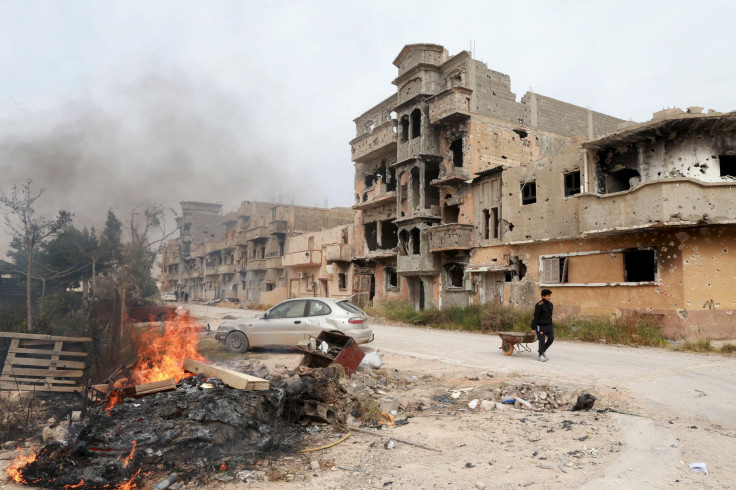Libya War Update: Foreign Military Intervention Will Worsen Humanitarian Crisis, UN Envoy Warns

Military intervention in war-ravaged Libya will only worsen an already dismal humanitarian crisis, the United Nations envoy to the North African state said Wednesday. The warning comes weeks after the U.S. launched airstrikes in the northwest, killing 49 militants affiliated with the Islamic State group.
"Any military intervention or internal fighting inside Libyan territory will exacerbate the humanitarian situation there; this means more displacement and more destruction," Ali Zaatari, the U.N.’s humanitarian coordinator and deputy envoy to Libya, told Turkey’s Anadolu Agency. "The urgent issue now is to quickly address the humanitarian crisis in Libya."
He said that more than 2 million people were in urgent need of food, and more than half a million people have been displaced. Humanitarian assistance from the international community fell starkly short of need. Of the estimated $166 million required, just $4.4 million had been received, he said.
UN envoy warns against military intervention in Libya https://t.co/yizuF8oNKw pic.twitter.com/o4rH7ANO1z
— ANADOLU AGENCY (ENG) (@anadoluagency) March 2, 2016
Libya has been torn by conflict since rebels, backed by Western airstrikes, ousted strongman Moammar Gadhafi in 2011 as part of the protest movement that swept several Arab countries that year. Since then, a power struggle has erupted between two divergent political factions, including an internationally recognized government in Tobruq and an Islamist-leaning government in Tripoli.
"A national unity government is necessary to rescue Libya and end the country’s political fragmentation," Zaatari said.
The continued conflict has allowed extremist groups, including the Islamic State terrorist group, to gain a foothold. U.S. officials believe a few thousand fighters now control significant territory, including the cities of Derna and Sirte. The group’s base in Libya is now considered a major international threat, but wary of further entrenching U.S. forces in a protracted conflict, officials have backed away from full-scale military intervention.
The strikes in February were targeted against Noureddine Chouchane, a senior operative in the group from Tunisia, who was believed to be involved in several attacks in his home-country. The operations targeted camps where foreign fighters operated but did not mark the start of a protracted, wider campaign.
© Copyright IBTimes 2024. All rights reserved.






















